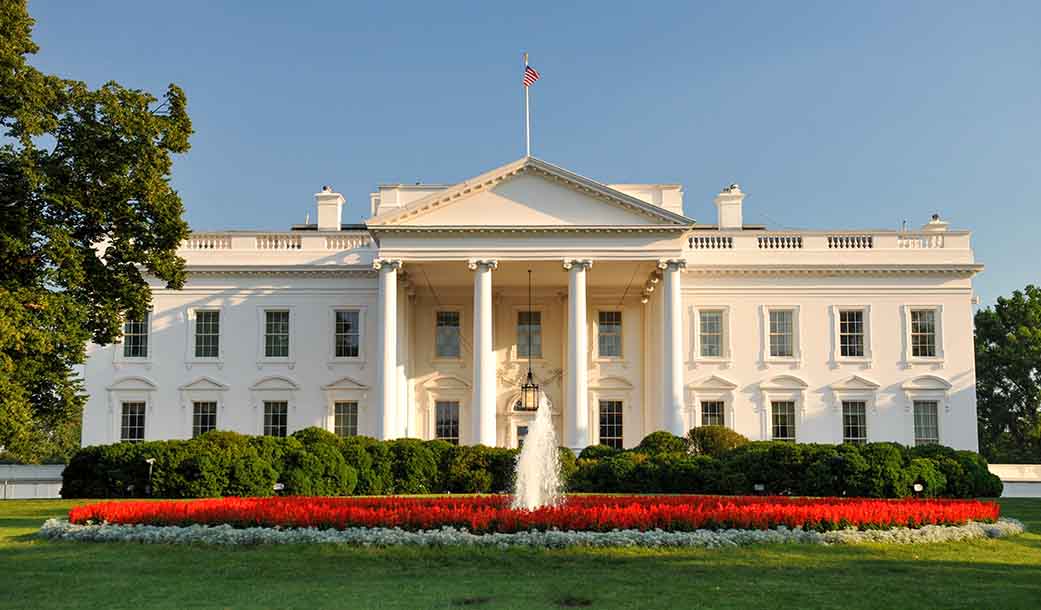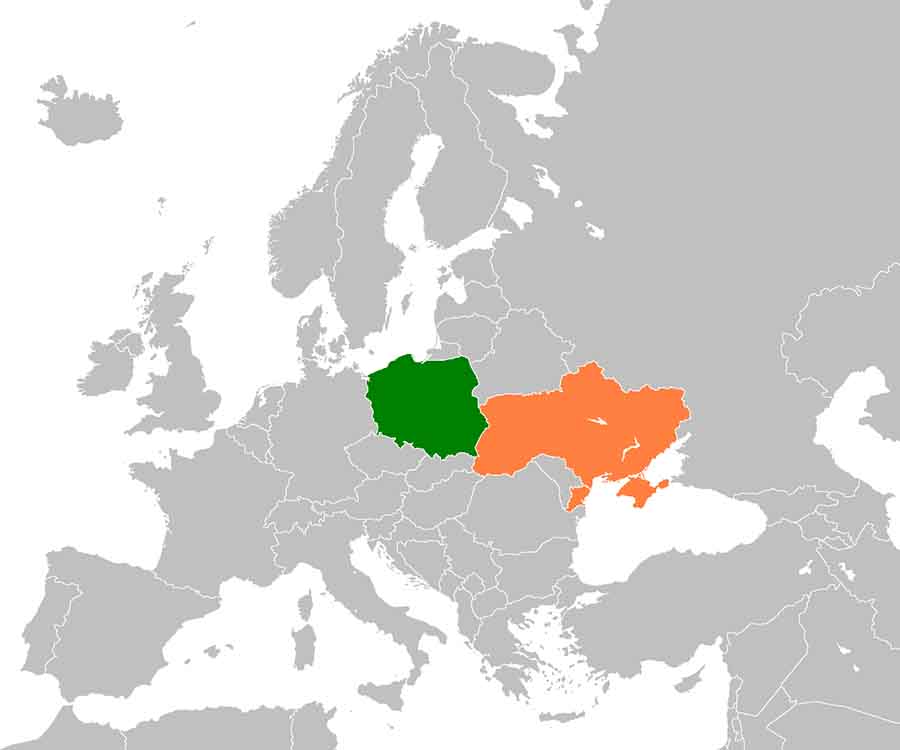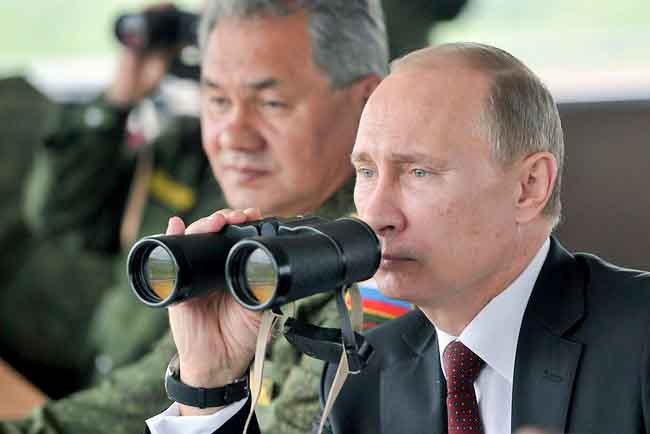In the midst of the election season in Poland, it is worth taking a deep breath and considering the dangers of polarizing national interests to the point of no return. We live in a time when deception is used across a wide spectrum of the media, and is used around the world by sophisticated actors using ever-improving technologies. It is important for Poland to understand how many divisions and confrontations are used by external entities to weaken national security. Hybrid warfare is a tool used to create ambiguity and passion in order to control the narrative leading to the minds and hearts of voters.
It is high time to unite all political, economic and military resources around building a strategy leading to the elevation of national security to the level of Poland's key priority. The neglect of the Polish diaspora as an element of Polish identity and strength is a result of the Polish post-colonial reality. Poland has not yet been able to develop a national long-term strategy for development and national security. To begin the process of creating an effective national strategy, the identification of hybrid threats and hybrid attacks must be the main task of analytical work, the aim of which should be to identify all overt, hidden and long-term threats and attacks that weaken national security.
George Frost Kenan (1904-2002) was an influential American politician and historian. He defined political warfare as all the means at a nation's disposal, including both overt and covert actions, to achieve national goals. Hybrid warfare is a step further into the complexity of warfare. It combines political warfare with military tactics and other measures designed to combat threats and attacks and to strengthen the defense of society and the nation. The scope of activities to weaken the enemy is so complex that the enemy is often unaware that he is under attack. This is essentially true to the purpose and simplicity of Sun Tzu, who stated over 2,500 years ago that the most refined skill is the ability to subdue an enemy without a fight.
There are two terms used to describe gray-zone attacks that do not meet the threshold of Clausewitz's classic definition of war, but still cause significant damage. These are hybrid threat, and hybrid warfare. Hybrid threat is the ability of the opponent to strike, and hybrid warfare is the ability to deal damage. When approaching hybrid warfare strategically, it is worth confusing the opposing nation to such an extent that it cannot clearly formulate its goals. It is then much easier to fight a confused enemy who does not even know what he wants. Russians have been using this strategy for centuries. When they emerged as the main enemy of the Russians, the Americans were not fully prepared to treat war as a hybrid phenomenon. Today, the Russians seem to be achieving more with hybrid attacks than with their armed forces' kinetic offensive. The Russians compete with the United States on equal terms, although their military power is much smaller.

(Graphic: A.Wozniewicz)
It is important that the military is engaged in analyzing the entire spectrum of threats, from hybrid threats, through hybrid warfare, to Clausewitz's classic kinetic warfare. Because hybrid threats and hybrid warfare are means of weakening a country's readiness and capabilities in the event of a true kinetic war, the military must be engaged in all aspects of threats, not just at the level of kinetic engagement. Policymakers must pay close attention to how the military perceives threats and what capabilities it needs to protect the country. Restrictions and obstacles to communication between politicians, the military and the government are the first sign of the country losing its potential ability to defend itself.
To ensure high integration between government, politicians, business and the military, Finland has introduced a "Comprehensive Security" program overseen by the Prime Minister-level Security Committee. Sweden has established a Department of Total Defense in the Ministry of National Defense.
One of President Biden's strongest moves so far in the confrontation with Russia was the announcement that he would not meet with Putin. This demonstrates the high level of sophistication in the use of hybrid threats. It weakens the position of Putin, who was often able to maneuver at a much higher level of the escalation ladder than his weak assets would indicate. When Putin agreed that Biden would not meet with him, Biden changed his position. This shows that the United States is using confusion and seizing the initiative as a tool in its hybrid arsenal.
Analyzing Ukraine's current involvement with Putin, former Putin adviser, now Washington analyst Andrei Nikolayevich Ilarionov, stated that the biggest mistake was that President Zelensky agreed to direct talks with Putin at all. According to Illarionov, Zelensky would gain nothing from such a meeting, but Putin could gain a lot. Illarionov was a senior economic advisor to Putin (2000-2005). In protest against Putin's political change and introduction of open dictatorship, Illarionov resigned from his position, left Russia for the United States and was appointed senior researcher at the Center for Global Freedom and Prosperity at the American libertarian think tank Cato Institute in Washington. Biden has not yet made Zelensky's strategic mistake, however, the temptation to make a deal with Putin proved irresistible to all American presidents during Putin's rule. Such contacts have always worked to Putin's advantage.
Polish strategic planning is burdened with doubts, tactical crisis situations, lack of concentration and well-defined action priorities which could result from a coherent long-term national strategy. In Poland, it often happens that the tactical needs of a political party were more important than national interests. If opposing political forces are not even able to meet systematically and record their differences — while working on a national interest strategy — there will be no effective national strategy. Poland must develop a ladder of national priorities and start a systematic dialogue with key constituencies, including the government, politicians, business and the military.
Even if the best national strategy has been developed, the key is how it is communicated to all voters based on their varying levels of capability. How involved are all partners of such a strategy and how is the implementation of such a strategy tested? The results of such a strategy, subordinated to specifically set goals, should indicate trends in the implementation process: are we improving or losing in various performance indicators? Is national business doing as well as politicians or the military planned? Are the needs of all components met? What needs to change during the implementation process? To what extent do tactical contingencies impact overall strategy? What overt and covert actions are being used by adversaries to disrupt our national strategy?
Points to consider:
- Ensuring that Poland is active in the global discourse
- Connecting Poland and the Polish diaspora into a coordinated communications network
- Focusing the strategic dialogue on Poland's needs, rather than on demands and immediate pressures imposed by external players
- Protect the development of Polish business from short-term political goals
- The ability to focus on the agenda created by Polish decision-makers, instead of following the agenda of others
Instead of looking for a scapegoat responsible for national problems, threats and implementation errors, Poland needs to brainstorm consolidating all national actors. Such analysis and efforts should be supported by in-depth scientific analysis in order to formulate a comprehensive national strategy. Ignoring the Polish community in such an effort reduces the potential profits by approximately 30% of the possibilities at the beginning of creating such a strategy.
A country that loses a hybrid war adopts the strategy imposed by its opponent. Accepts priorities dictated by others and often follows analyses and assessments that harm national interests. One of the results of faulty analysis and assessment is the approach towards the Polish community, which is often described as disorganized, unmotivated, useless, devoid of intellectual abilities, old and naive. It has been openly regarded by some politicians and intellectual elites as troublesome, anti-Semitic, nationalistic, full of religious fanatics, useless and a waste of money. In whose interest is it to divide the national potential and reject a priori one-third of the national potential? It is important to understand that until 1989, Polonia was an opponent of colonial Poland, operated from Moscow. Polonia's attempts to cooperate or help Poland were blocked and minimized, and the active leadership of Polonia was often ridiculed and eliminated.
At the same time, throwing money at the perpetrators of hybrid threats is a strategic mistake. Money invested in appeasing hybrid threat creators helps the adversary expand its reach and strengthen its key goal of directing domestic and international attention to issues that undermine optimal state goals. Countries that effectively project their image aggressively project specific goals rather than simply reflecting the damage caused by their adversaries' aggressive, proactive programs. If the government is forced to respond to a narrative imposed by external actors, it is exposed to a hybrid threat. Understanding this approach, in 2018 Sir Nicholas Carter, Chief of the General Staff of the British Army, clearly stated that certain forms of attacks by actors such as Russia are "a form of systemic warfare that seeks to delegitimize the political and social system on which our military power is based. "
Considered from a long-term, geostrategic perspective, cyber offensive operations are a form of hybrid engagement that can paralyze entire economies, change political views, create conflict within or between states, reduce their military effectiveness, and equalize the capabilities of high-tech countries with those of low-tech countries and exploit access to their critical infrastructure to blackmail them.
In the United States, General Keith B. Alexander, the first head of USCYBERCOM, told the Senate Armed Services Committee that computer network warfare was evolving so rapidly that there was a "discrepancy between our technical capabilities to conduct operations and applicable laws and policies. [USCYBERCOM] is the world's newest warrior and its only mission is cyberspace, beyond the traditional battlefields of land, sea, air and space." It will try to find and, if necessary, neutralize cyberattacks and defend military computer networks. The distributed nature of online attacks makes it difficult to determine the motivation and attacking party, meaning it is unclear when an act should be considered an act of war.
Many countries are conducting exercises to increase the readiness of their strategies, tactics and operations related to conducting and defending against national-level cyberattacks. This is usually done in the form of war games. The Cooperative Cyber Defense Center of Excellence (CCDCE), part of the North Atlantic Treaty Organization (NATO), has been running an annual war game called Locked Shields since 2010. Locked Shields 2019 had 1,200 participants from 30 countries competing in red and blue team exercises. The war game involved the fictional country of Berylia, which was "experiencing a deteriorating security situation where a series of hostile events coincide with coordinated cyberattacks on a major civilian internet service provider and maritime surveillance system, power generation and distribution, 4G communication systems, maritime surveillance, water treatment plant and other critical infrastructure elements.” The CCDCE describes that the aim of the exercise was to "keep various systems operating under intense pressure, the strategic part is about the ability to understand the impact of decisions made at strategic and political levels." Ultimately, France was the winner of Locked Shields 2019.
Hybrid threats, hybrid warfare and cyber attacks are ubiquitous elements of contemporary national existence. Recent political events indicate that the rebalancing of the world order is gaining momentum. This is a time of danger, but also of opportunity. With 30 years of independent experience, it is time for Poland to start developing its national strategy for the next decades with all hands, to be able to take into account all aspects with their astonishing complexity and long-term horizon. Poland has the potential to advance on the global ladder of competition and importance. It's time to start strategically charting the course.
Translation from Polish by Andrew Woźniewicz.








